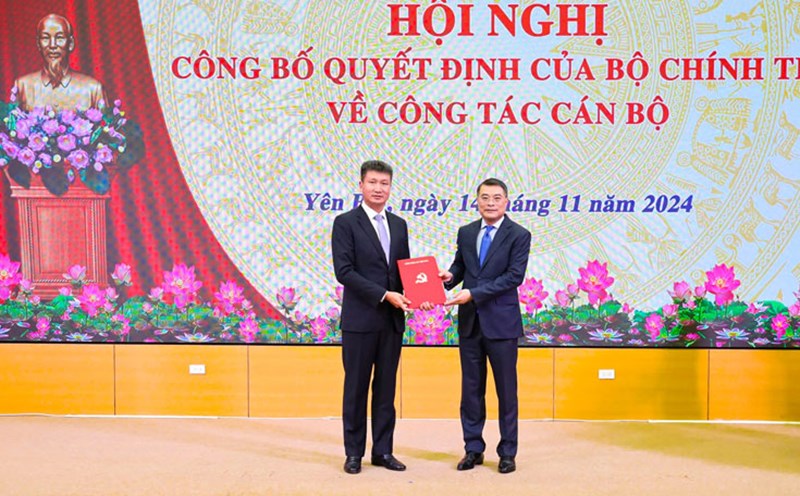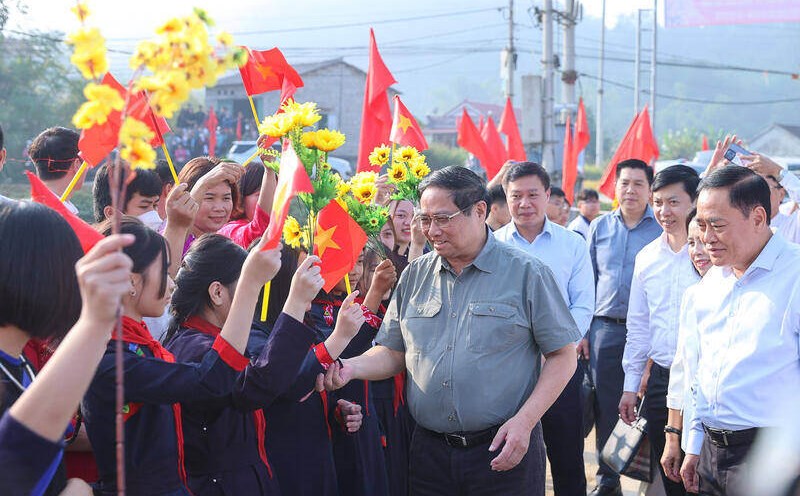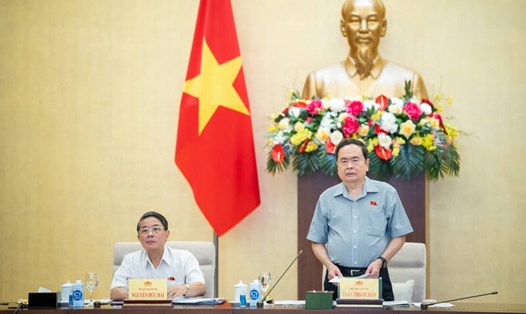Building legislation that is a model of innovative thinking
At the 8th session, the National Assembly focused on law-making and supervision. Once again, institutional bottlenecks in many areas were frankly analyzed by delegates, illustrated with vivid real-life stories.
Solving institutional bottlenecks means clearing bottlenecks in law making and enforcement, thoroughly overcoming the mechanism of asking and giving, the mindset of "if you can't manage, then ban" and the situation of having policies and laws but being hesitant to implement or innovate.
Right when the 2024 Land Law was passed in early 2024, many people were happy because they would have the opportunity to hold in their hands the land use right certificate they had long desired.
Because the new Land Law opens up opportunities to be granted certificates of land use rights and ownership of assets attached to land for many households and individuals who are using land without documents on land use rights without violating land laws, and are not in cases where land is allocated without proper authority:
People are very happy that the State has changed the law in accordance with their legitimate thoughts and aspirations. We hope that the law will be implemented correctly and sufficiently according to the wishes of the people and the regulations issued by the State.
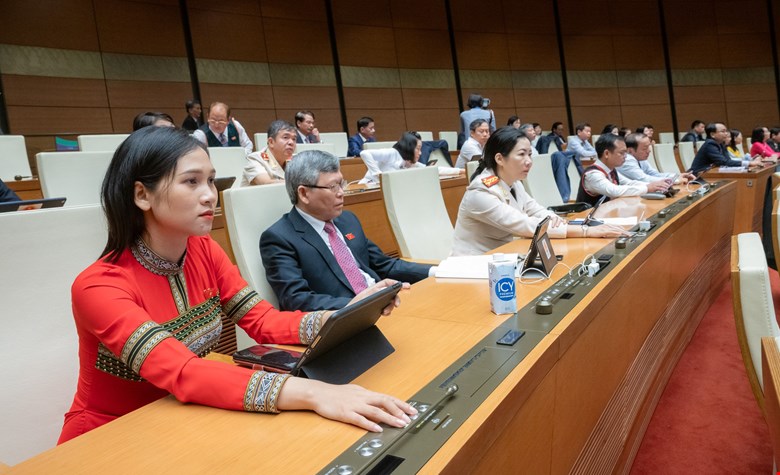
From the perspective of institutional development for localities, Resolution 136 of 2024 of the National Assembly on the organization of urban government and piloting a number of specific mechanisms and policies for the development of Da Nang City opens up new opportunities for development worthy of a key urban area in the Central region.
Most notably, the National Assembly agreed to establish the Da Nang Free Trade Zone associated with Lien Chieu seaport, with the goal of attracting investment, finance, trade, tourism and high-quality services.
Or as in the draft laws, the National Assembly, the National Assembly Standing Committee, and National Assembly deputies are very interested in the Law on Teachers.
Vice Chairwoman of the National Assembly Nguyen Thi Thanh emphasized that it is necessary to strive to build the Law on Teachers into a model law on innovation in law-making thinking to meet the requirements of the new period; ensuring a short, concise, clear, and authoritative bill that can be implemented immediately after promulgation.
These are examples showing the practical effectiveness of continuous and clear innovations in the work of building and perfecting institutions, policies and laws, thereby bringing new vitality to the economy and improving people's lives as set out in the Resolution of the 13th National Party Congress.
These results come first from a clear awareness of the importance of the legal system. Over the past time, the Party, Government and National Assembly have always paid special attention to leading and directing the building and perfecting of the legal system.
Many institutional and legal problems have been urgently resolved by the National Assembly in recent times. Right at this 8th Session, the National Assembly is also focusing on reviewing the Government's proposals to amend and supplement a series of laws in the fields of economics, finance, tax, investment, etc.
However, reforms at the legal level will only be effective when the obstacles and bottlenecks caused by sub-law documents and implementation are also resolved synchronously, even more drastically and urgently.
Remove the growth-inhibiting ring
From practical activities, delegate Nguyen Nhu So (Bac Ninh delegation) said: administrative procedure barriers and unofficial costs are still like a "golden hoop" that hinders business development.
Delegates pointed out that statistics show that only 30% of small and medium-sized enterprises have access to bank loans, while these enterprises need a lot of financial resources to expand their scale, invest in technology and improve their competitiveness.
According to the delegate, it is clear that the above barriers mainly lie in sub-law documents, in the organization of law enforcement, and also in the mindset that is heavily focused on management, the mentality of fear, fear of mistakes, and fear of responsibility, which leads to the creation of extra-legal procedures by the law enforcement team.
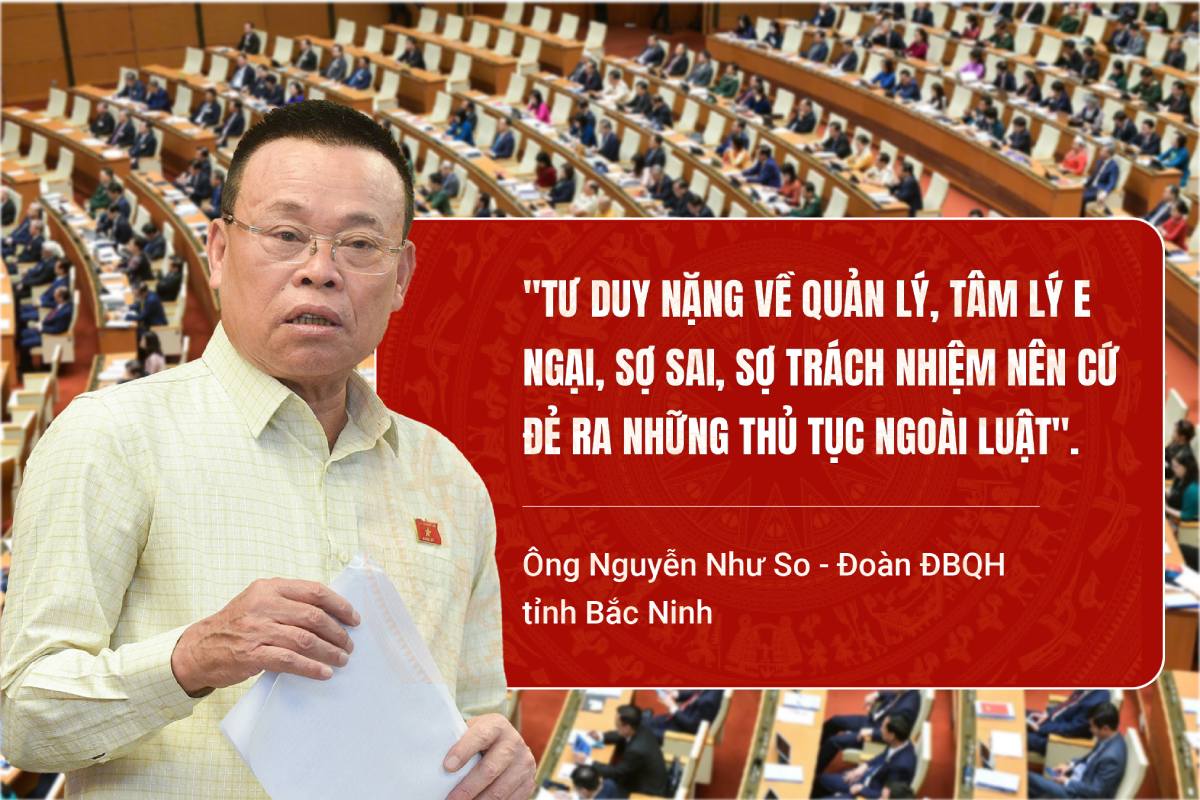
A common message reflected in most groups in the National Assembly session is to urgently remove difficulties and obstacles for businesses, increase support for businesses facing difficulties, and create conditions for private businesses to develop.
According to the delegate, these are not general statements but must be based on specific policies and specific actions, especially cutting administrative procedures, legal compliance costs, reforming the transparent business environment, and creating maximum convenience for businesses.
Since the beginning of the term, the Government has organized more than 28 specialized meetings on law-making; commented on, reviewed and approved more than 100 proposals for law-making and draft laws; and issued more than 380 decrees.
Prime Minister Pham Minh Chinh assessed the 8th Session as a "record" session because the number of draft laws passed and commented on was the highest since the beginning of the term, aiming to remove obstacles and mobilize all social resources, especially non-state resources for development.
"The Government and the Prime Minister pay special attention to prioritizing resources to actively prepare draft laws for the National Assembly to consider and approve, in order to promptly remove difficulties and obstacles and unleash all resources for socio-economic development.
The spirit of the 10th Central Conference is to only discuss action, not retreat. In the current situation of the country, with the new spirit, the era of national development, we must work harder, be more active, accelerate more, to make more breakthroughs, be more determined, focus more on key points to move forward, to make a breakthrough together in the process of national development," the Prime Minister pointed out.
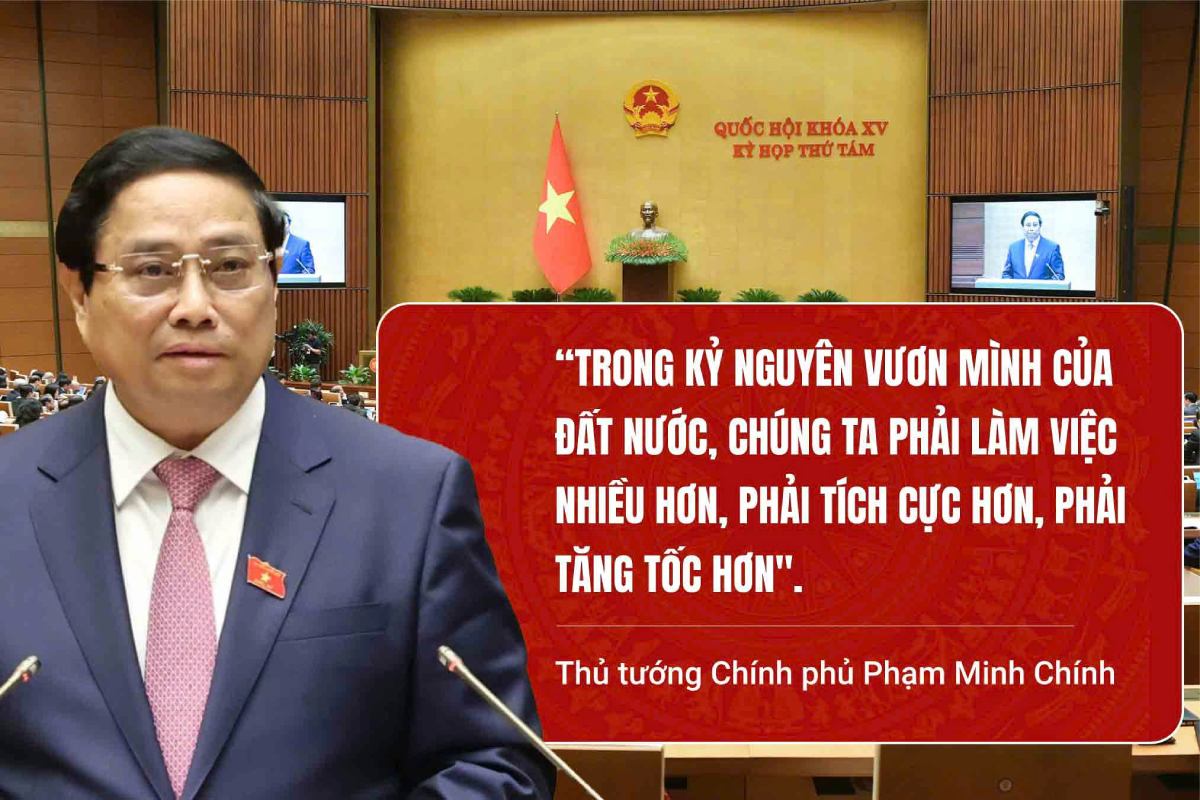
Minister of Planning and Investment Nguyen Chi Dung said that law-making work must be imbued with the guiding ideology of General Secretary To Lam.
"Previously, law making was mainly for management, but this time we must both manage and create development, promote creativity, and expand space to free up resources for development.
This is a very new requirement that must eliminate two things as the General Secretary stated: If you can't do it, then ban it and ask for it, your power, my power. In those powers, there will be interests, there will be group interests, hindering the country. Next, we must strongly shift from pre-control to post-control," said Mr. Nguyen Chi Dung.
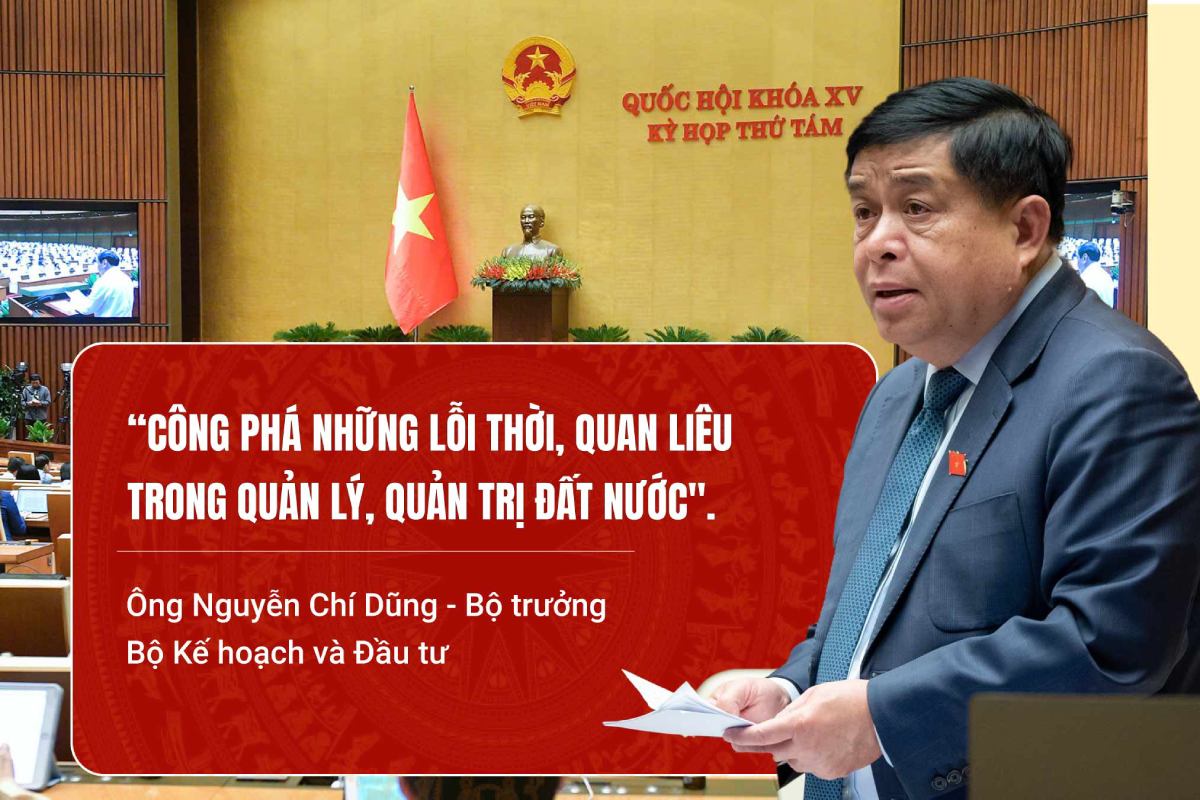
Solving institutional bottlenecks by innovating thinking in law-making, changing old methods to unleash resources to create and develop the country in the new era.
At the same time, solving institutional bottlenecks must also come from innovation, breaking down outdated and bureaucratic issues in national management and governance, building a streamlined, efficient government apparatus, and improving labor productivity.





